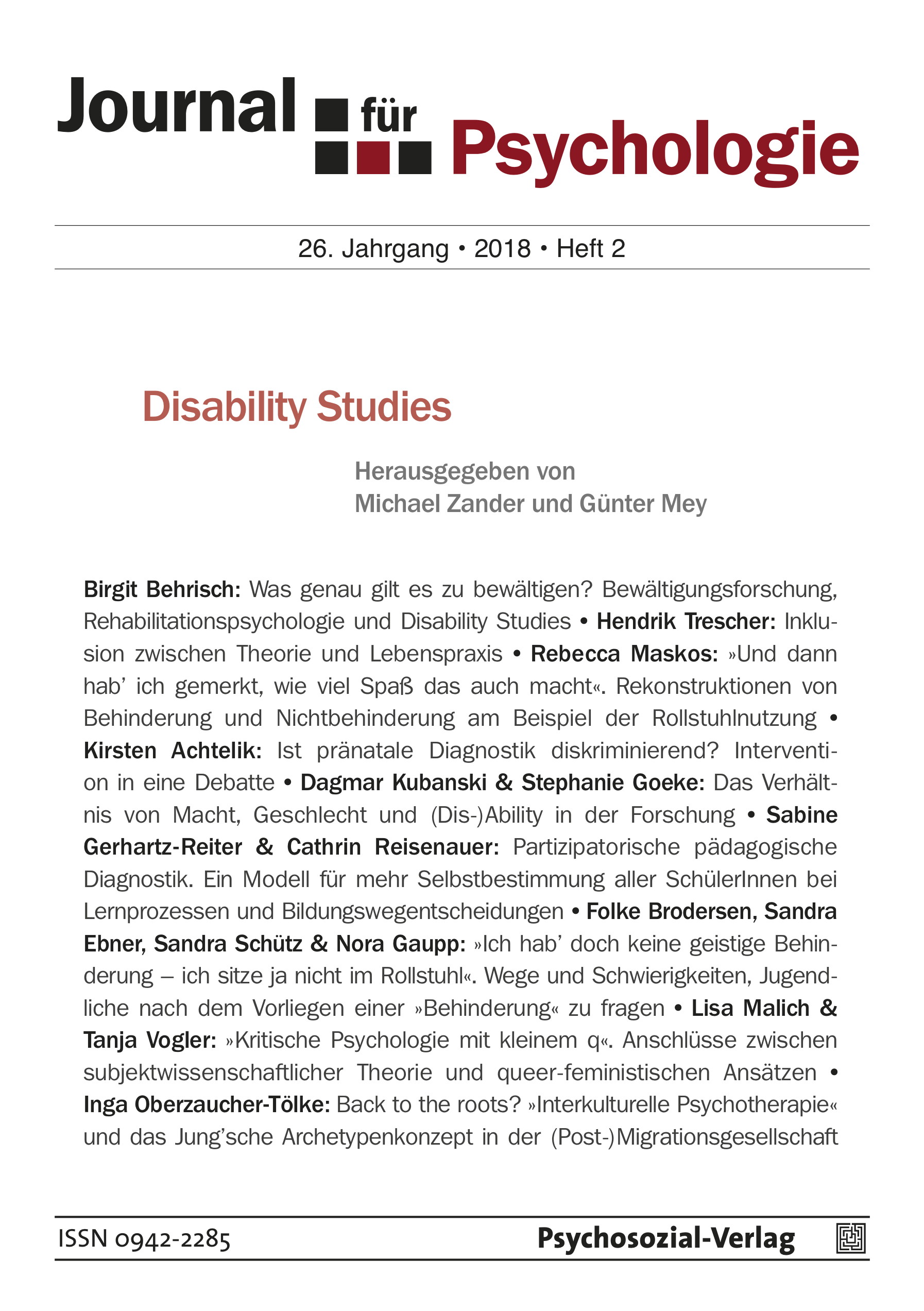»Ich hab’ doch keine geistige Behinderung – ich sitze ja nicht im Rollstuhl«
DOI:
https://doi.org/10.30820/8248.08Keywords:
quantitative social science, youth studies, operationalizing disability, life-world orientationAbstract
Operationalizing »disability« presents researchers with a number of challenges: criteria must be defined, the relevance of legal institutions must be reflected, and the questions posed to survey participants must ultimately be answerable, especially when surveys address people with various disabilities. This paper begins with an analysis of the strategies currently adopted by researchers and then focuses in particular on an approach which is oriented to the lifeworld of survey participants. To this end, young people with disabilities were invited to take part in focus groups and individual interviews in which they were able to discuss and evaluate various dimensions of »disability«: these included disabled person’s ID cards, self-perception, physical functions and impairments, classifications based on medical-diagnostic terminology, the use of assistive devices and personal experiences of barriers. The ensuing discussion explores the young interviewees’ reactions to these dimensions, their preferences, the relative ease of answering questions targeting the various dimensions, and ways of drawing connections between the dimensions in order to develop an empirically differentiated model of disability. The paper concludes by indicating promising combinations of dimensions in the operationalization of disability and by arguing that much insight stands to be gained when researchers adopt a multidimensional approach to »disability«.Downloads
Published
2018-11-21
How to Cite
Brodersen, Folke, Sandra Ebner, Sandra Schütz, and Nora Gaupp. 2018. “»Ich hab’ Doch Keine Geistige Behinderung – Ich Sitze Ja Nicht Im Rollstuhl«”. Journal für Psychologie 26 (2):133-59. https://doi.org/10.30820/8248.08.
Issue
Section
Schwerpunkt
License
This license allows private use and unmodified distribution, but prohibits editing and commercial use (further information can be found at: https://creativecommons.org/licenses/by-nc-nd/4.0/).
The terms of the Creative Commons licence only apply to the original material. The reuse of material from other sources (marked with a reference) such as charts, illustrations, photos and text extracts may require further permission for use from the respective copyrights holder.



